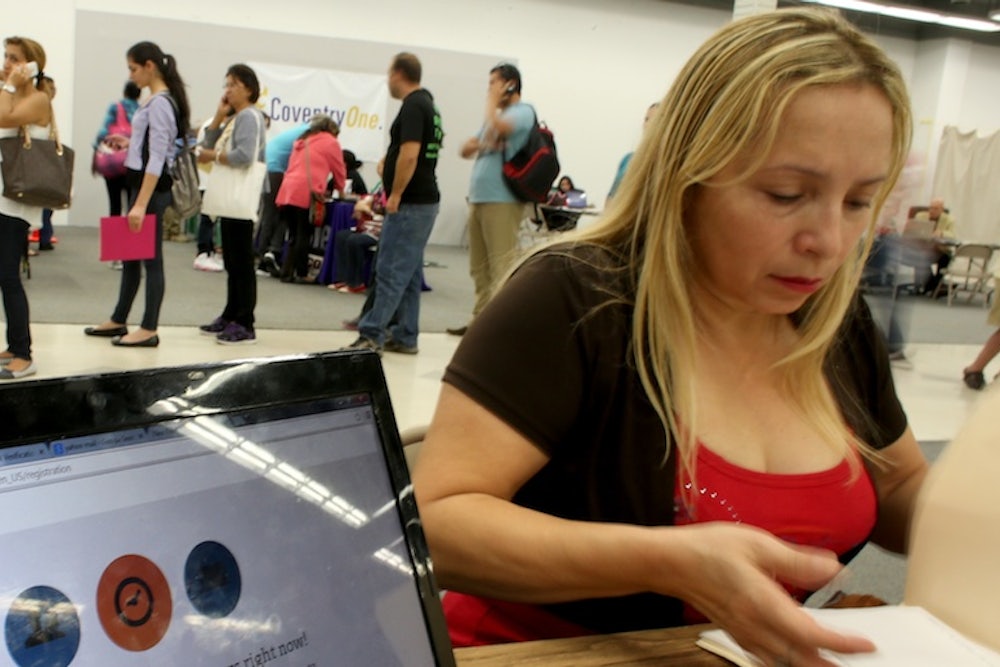The data comes from Gallup, the polling firm that has provided the most thorough tracking of the law’s reach so far. On Wednesday afternoon, the organization released a new set of findings. Most important among them? According to Gallup, about 4 percent of American adults report that they are newly insured as of this spring. The figure is consistent with previous Gallup findings, which suggested that the number of people without health insurance had fallen by about 7 million people through late March.
That's less than what the Congressional Budget Office expected to see this year (thought it's hard to say by how much, since Gallup and CBO aren't counting the same way). But the most recent Gallup polling, from the end of open enrollment in early April, suggests the number of uninsured will come down further by the end of the month. And that still wouldn't account for people who will get insurance later in the year, either because they will sign up for Medicaid (which doesn't have a limited enrollment window) or get access to the new marketplaces because of life changes (such as a divorce or lost job).
Still, the statistic masks plenty of ambiguity. Among other things, Gallup got that result by asking people whether they had gotten insurance this year—and then, if they said yes, whether they had insurance last year. Not everybody will interpret that question the same way. (Some will think it refers to the entire calendar year, while others will think it refers to their status at the end of December.) That introduces uncertainty, enough that you shouldn't take that figure too literally. It could be higher and it could be lower.
You should also be cautious about making too much about Gallup’s other findings, which focus on who the newly insured are. Again, it’s the kind of news the law’s supporters have been hoping to hear. Gallup found that the newly insured tend to be slightly younger than the population as a whole—and that they report pretty average health status. A big worry about the Affordable Care Act is that older, sicker people would sign up in disproportionately high numbers. Gallup’s numbers would suggest that isn’t happening.
But these results, too, may not be so precise. Gallup’s sample size of newly insured people is just 649 people. According to the methodology explanation, the margin of error for that sample is plus or minus 5 percentage points. The margin of error for questions among just those who signed up for insurance through the new marketplaces, and those who did not—in other words, the two groups that make up that 649—is 7 percentage points. Those aren't huge. But when it comes to statistics that are dependent on subjective answers to questions—for example, whether health status is good or poor—the responses themselves can be misleading.
None of this makes the survey inconsequential. While none of the survey findings to date are definitive, together they are a powerful rejoinder to the assumption—prevalent not just among conservatives but even among some liberals—that Obamacare has been a fiasco. It's not clear how big a difference it's making, or whether people will think that difference justifies the law's costs. But it's certainly making a difference. “It’s more confirmation that we are seeing gains in insurance coverage as the ACA rolls out,” says Sharon Long, a senior fellow at the Urban Institute, which has produced studies with similarly encouraging results. “It is a limitation that it’s a small sample, but we can learn more as Gallup goes forward with these new survey questions.”
Note: This item has been updated. Among other things, I had understood "newly insured" in this case to mean a net change in the uninsured. I also hadn't noticed the early April polling. I've modified the text accordingly.

